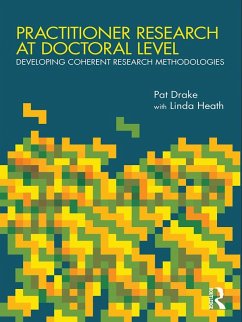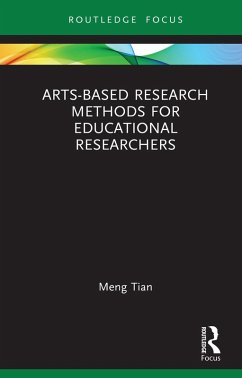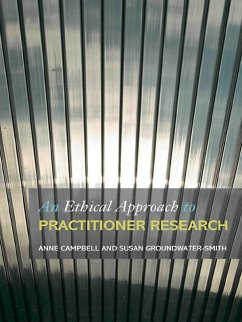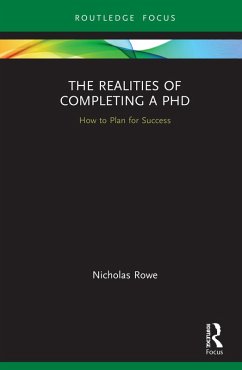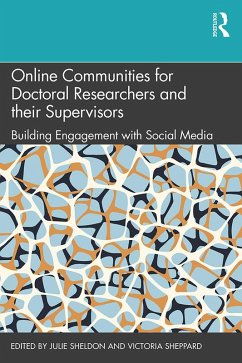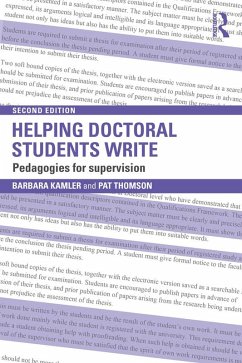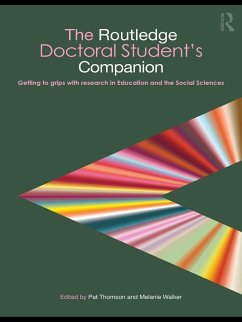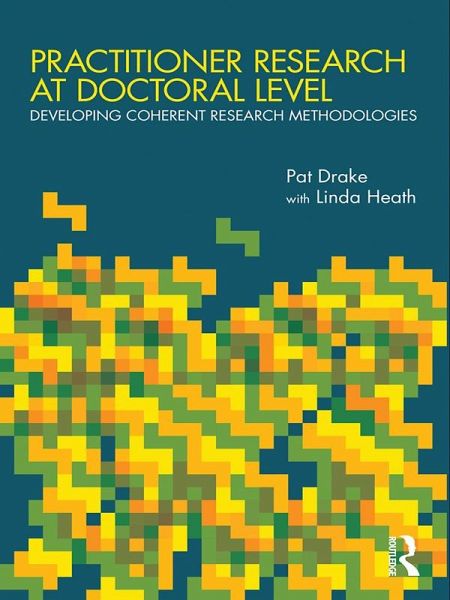
Practitioner Research at Doctoral Level (eBook, PDF)
Developing Coherent Research Methodologies
Versandkostenfrei!
Sofort per Download lieferbar
36,95 €
inkl. MwSt.
Weitere Ausgaben:

PAYBACK Punkte
18 °P sammeln!
In trying to juggle the various priorities of doctoral study, many individuals struggle. From gathering data, preparing papers and organising projects, to the less obvious difficulties of time management and personal development, doctoral researchers are heavily tasked. In addition to this, those undertaking practitioner research face the complication of negotiating a less traditional research setting.As a guide to this ongoing, often neglected aspect of doctoral research, the authors of this innovative book explore in detail the challenges faced by doctoral researchers conducting practitioner...
In trying to juggle the various priorities of doctoral study, many individuals struggle. From gathering data, preparing papers and organising projects, to the less obvious difficulties of time management and personal development, doctoral researchers are heavily tasked. In addition to this, those undertaking practitioner research face the complication of negotiating a less traditional research setting.
As a guide to this ongoing, often neglected aspect of doctoral research, the authors of this innovative book explore in detail the challenges faced by doctoral researchers conducting practitioner research today. They show that the special nature of this research and the conditions in which the professional researcher works raise questions about producing new knowledge at work through research. This affects everything: relationships with practice; ethics; the ways that they are taught and supervised; the genre of the thesis; all place practitioners in situations which may not methodologically align with conventional approaches.
In this book the authors take the opportunity to explore these themes in an holistic and integrated way in order to develop a sense of methodological coherence for the practitioner researcher at doctoral level. In doing so, the authors argue for what is possible, suggesting that universities should critically examine practitioner doctorates to accommodate new forms of knowledge formation.
As an invaluable guide through doctoral research, this book will be essential reading for both doctoral researchers and supervisors alike, as well as practitioner researchers working in professional settings more generally and those engaging in policy debates about doctoral research.
As a guide to this ongoing, often neglected aspect of doctoral research, the authors of this innovative book explore in detail the challenges faced by doctoral researchers conducting practitioner research today. They show that the special nature of this research and the conditions in which the professional researcher works raise questions about producing new knowledge at work through research. This affects everything: relationships with practice; ethics; the ways that they are taught and supervised; the genre of the thesis; all place practitioners in situations which may not methodologically align with conventional approaches.
In this book the authors take the opportunity to explore these themes in an holistic and integrated way in order to develop a sense of methodological coherence for the practitioner researcher at doctoral level. In doing so, the authors argue for what is possible, suggesting that universities should critically examine practitioner doctorates to accommodate new forms of knowledge formation.
As an invaluable guide through doctoral research, this book will be essential reading for both doctoral researchers and supervisors alike, as well as practitioner researchers working in professional settings more generally and those engaging in policy debates about doctoral research.
Dieser Download kann aus rechtlichen Gründen nur mit Rechnungsadresse in A, B, BG, CY, CZ, D, DK, EW, E, FIN, F, GR, HR, H, IRL, I, LT, L, LR, M, NL, PL, P, R, S, SLO, SK ausgeliefert werden.




